
Blog suivi par 8 abonnés
Le blog de Berliner Gazette

À propos du blog
Berliner Gazette (BG) is a nonprofit and nonpartisan team of journalists, researchers, artists, and coders, experimenting with and analyzing emerging cultural and political practices. Since 1999 we have1…
been publishing berlinergazette.de under a Creative Commons License with more than 1,000 contributors. In dialogue with our international network we create annual projects, exploring the issues at hand not only in the form of text series but also conferences and books. Our latest projects include "Black Box East" (2021), "Silent Works" (2020), "More World" (2019), "Ambient Revolts" (2018), "Signals" (2017), "A Field Guide to the Snowden Files" (2017), "Friendly Fire" (2017), "Tacit Futures" (2016), "UN|COMMONS" (2015), "BQV" (2012), and "McDeutsch" (2006).
-
Internationalist Movements? Climate Crisis, Working Class, The Means Of Production
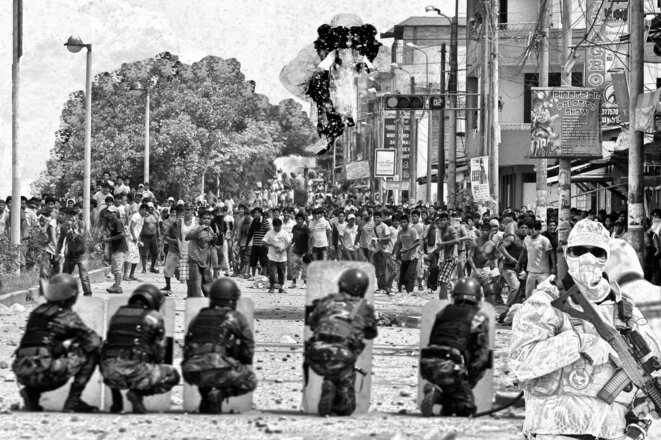 As capital embarks on a new cycle of creative destruction in the face of “our common enemy” (the climate crisis), the time has come for new internationalist movements to arise, argues scholar-activist Boris Kagarlitsky in his contribution to BG’s “Allied Grounds” text series.
As capital embarks on a new cycle of creative destruction in the face of “our common enemy” (the climate crisis), the time has come for new internationalist movements to arise, argues scholar-activist Boris Kagarlitsky in his contribution to BG’s “Allied Grounds” text series. -
Against Eco-Apartheid: Towards Internationalist And Multi-Racial Worker Struggles
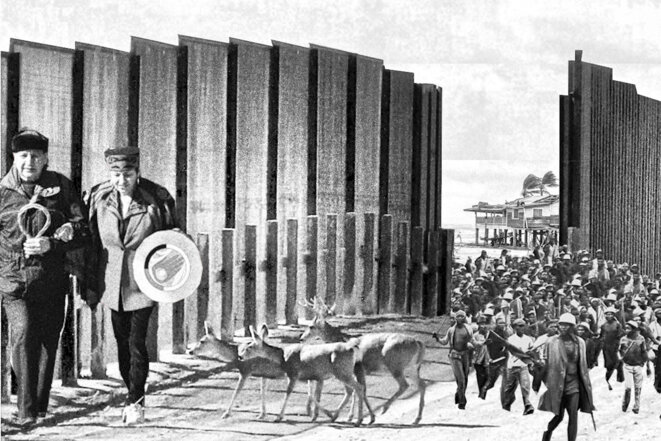 As global economic-ecological crises aggravate, the spread of racist nationalism accelerates. The reinforced divisions of the working class into white and non-white workers pose a great challenge to all of us, as scholar-activist Harsha Walia argues in her contribution to the BG’s “Allied Grounds” text series.
As global economic-ecological crises aggravate, the spread of racist nationalism accelerates. The reinforced divisions of the working class into white and non-white workers pose a great challenge to all of us, as scholar-activist Harsha Walia argues in her contribution to the BG’s “Allied Grounds” text series. -
Common Labor Struggles? The Eco-Social And Decolonial Question Of Climate Crisis
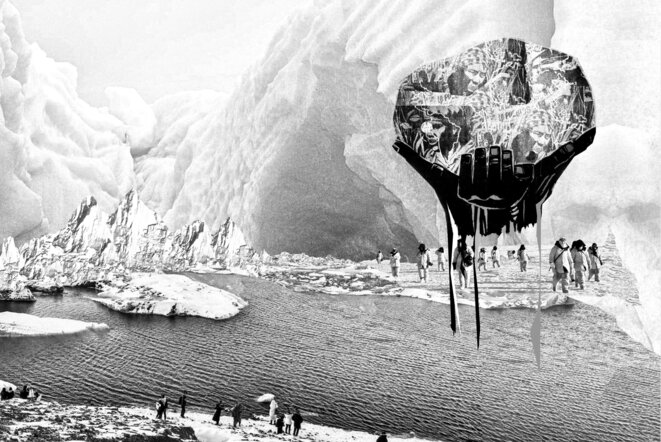 The means of production have become the means of climate production, so how can we – all kinds of exploited workers around the world – seize these very means and address both the eco-social and decolonial question of the climate crisis? “Allied Grounds,” the Berliner Gazette project 2023, will explore this bundle of issues, as Magdalena Taube and Krystian Woznicki explain.
The means of production have become the means of climate production, so how can we – all kinds of exploited workers around the world – seize these very means and address both the eco-social and decolonial question of the climate crisis? “Allied Grounds,” the Berliner Gazette project 2023, will explore this bundle of issues, as Magdalena Taube and Krystian Woznicki explain. -
Proto-Immersive States: Impacts of Tourism on the Adriatic Seas and Coasts
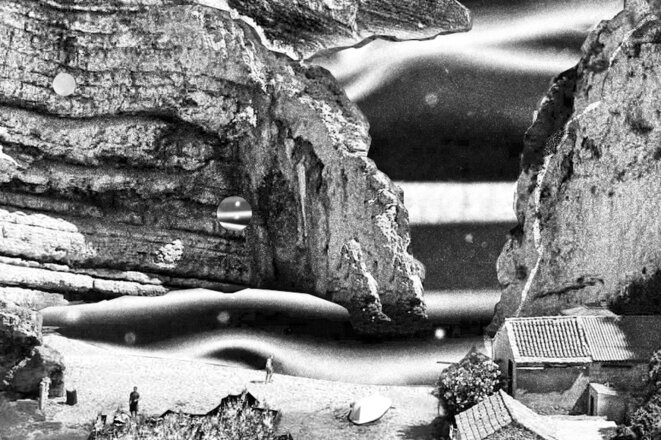 The tourism industry contributes a higher share to GDP in Croatia than in any other country of the EU. Here, the social and political conflicts that arise in the age of environmentalism unfold as if under a burning glass, and art can be a tool for investigation and mediation, argue Manca Bajec and Robertina Šebjanić in their contribution to the BG text series “After Extractivism.”
The tourism industry contributes a higher share to GDP in Croatia than in any other country of the EU. Here, the social and political conflicts that arise in the age of environmentalism unfold as if under a burning glass, and art can be a tool for investigation and mediation, argue Manca Bajec and Robertina Šebjanić in their contribution to the BG text series “After Extractivism.” -
Cosmovisions: Indigenous Community Worldviews Inspiring Alternatives to Extractivism
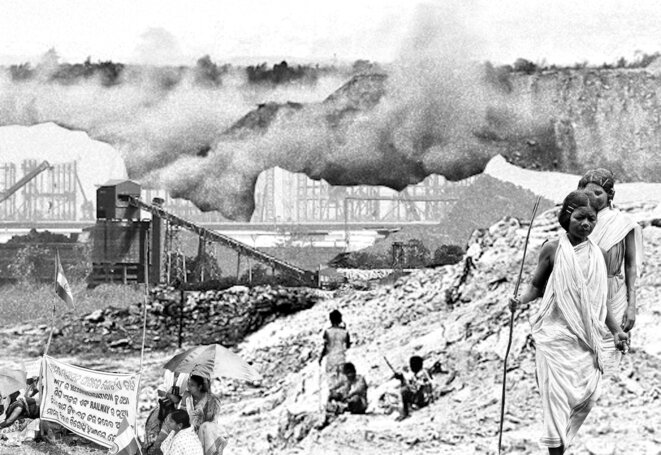 Indigenous perspectives from India and South Asia are missing from the discourses that influence economic, environmental, social, and political decision-making at COPs and UN meetings, as well as in government policy, but this must change, Shrishtee Bajpai argues in her contribution to the BG text series “After Extractivism.”
Indigenous perspectives from India and South Asia are missing from the discourses that influence economic, environmental, social, and political decision-making at COPs and UN meetings, as well as in government policy, but this must change, Shrishtee Bajpai argues in her contribution to the BG text series “After Extractivism.” -
Eco-struggles in Serbia: “We don’t need a green transition, we are already green.”
 The mineral found in Serbia’s Jadar region is key to electric car batteries. The advocates of green capitalism, however, don’t have an easy time of it: they’re confronted by local farmers who claim they don’t need a green transition because they’re already green. After all, they say, the future is agriculture, as Mihajlo Vujasin notes in his contribution to the BG text series “After Extractivism.”
The mineral found in Serbia’s Jadar region is key to electric car batteries. The advocates of green capitalism, however, don’t have an easy time of it: they’re confronted by local farmers who claim they don’t need a green transition because they’re already green. After all, they say, the future is agriculture, as Mihajlo Vujasin notes in his contribution to the BG text series “After Extractivism.” -
From Potemkin village to Potemkin Empire: The Specters of Extractivism in the Donbas
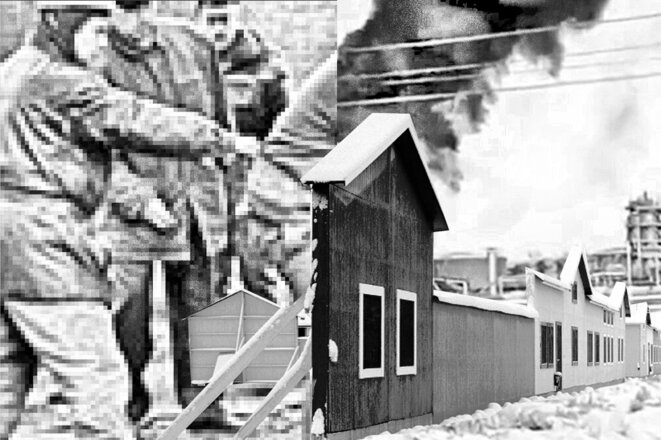 The imperial strategy of territorial expansion and colonization of resources advanced by the Putin regime will accelerate the decline of Russia because behind its facade lie a large number of unknown, unexamined, and unaddressed systemic problems, Elena Batunova argues in her contribution to the BG text series “After Extractivism,” exploring the case of the former mining town of Novoshakhtinsk.
The imperial strategy of territorial expansion and colonization of resources advanced by the Putin regime will accelerate the decline of Russia because behind its facade lie a large number of unknown, unexamined, and unaddressed systemic problems, Elena Batunova argues in her contribution to the BG text series “After Extractivism,” exploring the case of the former mining town of Novoshakhtinsk. -
Emergent Ecological Movements: Fighting Privatization of Water Resources in Slovenia
 Eco-initiatives have proliferated in former Yugoslavia, forming the most vibrant part of societies and thus giving hope after years of despair. In Slovenia the movement “Za pitno vodo” (For Drinking Water) can serve as a starting point for the politicization of this moment, Gal Kirn and Karla Tepež argue in their contribution to the BG text series “After Extractivism”.
Eco-initiatives have proliferated in former Yugoslavia, forming the most vibrant part of societies and thus giving hope after years of despair. In Slovenia the movement “Za pitno vodo” (For Drinking Water) can serve as a starting point for the politicization of this moment, Gal Kirn and Karla Tepež argue in their contribution to the BG text series “After Extractivism”. -
Oil Curse: Russia’s Petroimperialism And The (In)Human Geographies Of War
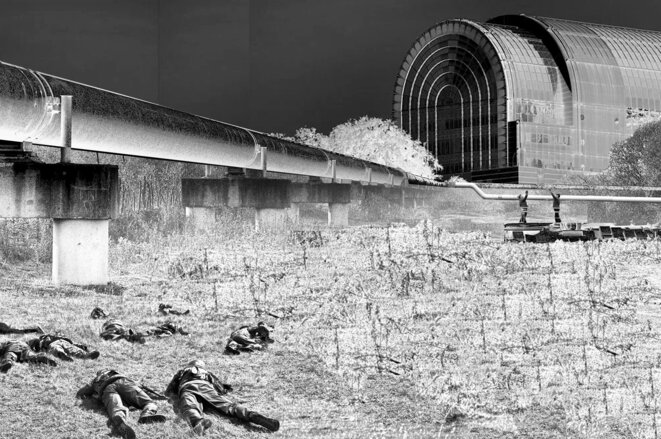 Time and again, Russia’s aggression against Ukraine is being called a “fossil war.” But what does that actually mean? Oxana Timofeeva shows in her contribution to the BG text series “After Extractivism” how the extractivist ecosystem of the oil industry is not only being maintained during the war, but also literally fuels it.
Time and again, Russia’s aggression against Ukraine is being called a “fossil war.” But what does that actually mean? Oxana Timofeeva shows in her contribution to the BG text series “After Extractivism” how the extractivist ecosystem of the oil industry is not only being maintained during the war, but also literally fuels it.



